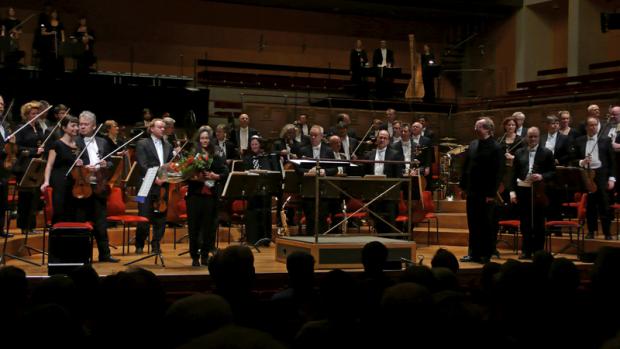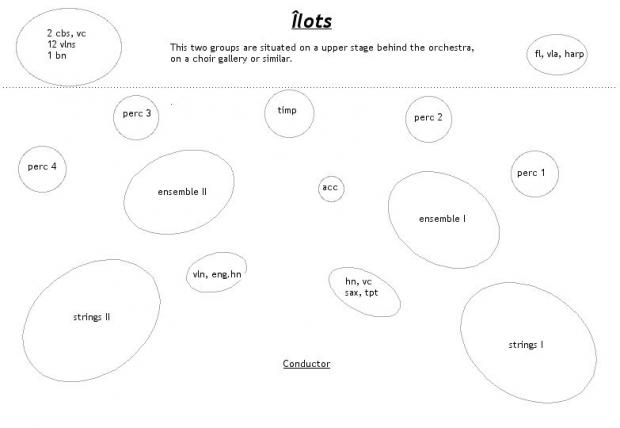

orchestre:
3.2.2.2.3.2.2.1/timp.+ 4 percs./hrp./acc./sax./cordes: 25.11.8.6
commande: Society of Swedish Composers
création: (21.2.2008, Stockholm New Music Festival 2008
L'Orchestre Philharmonique de Stockholm, chef d'orchestre: Christian Eggen
éditeur: Svensk Musik
The title of Madeleine Isaksson's new orchestra piece Îlots, meaning islets or small islands, has to do with the way the symphony orchestra has been placed in the room. Instead of the traditional disposition, she has divided the orchestra into groups large and small, in part to be able to work in a more chamber-musical way, but also to break down the hierarchical structure the symphony orchestra. It is true that for the listener, the music still resounds "within a frame", as a head-on image, but much of what takes place is about the liberation from established patterns of organization. For example, two of the musical groups are placed up on the grandstand.
This is not music of natural romance, but the various islands form a kind of archipelago. The relationship between the islets is in the crust of earth that hides beneath the surface. A dialogue is ongoing between the different groups, but also a battle of strong fields of energy. The two string sections, which are placed at the very front in mirror formation, play choppy rhythms with a descending nature, while the grandstand group, for instance, provides a lighter and more ascending presentation. The different rhythms form a kind of pulsing unit that dominates the first half of the piece.
A vertical cleft situation is written into the middle of the piece. Starting with the percussion, a loosening motion that leads to a cleaving of the entire register occurs. This results in a vapour of small melodic fragments, as the solo groups become more prominent, and the music gradually becomes thinner and more lyrical. It could be compared to a laboratory, with chemical reactions and molecular bonding once the material has been heated. But the music is not at all metaphorical. It is about the material itself, about a transformation from within , about an intearction in which participation itself affects structures and perspectives.
One source of inspiration is an early quotation from Karl Marx and Friedrich Engels' The German Ideology, which describes an alternate way to organise society: "In direct contrast to German philosophy which descends from heaven to earth, here we ascend from earth to heaven (...) We set out from really active men (...)"
© Magnus Haglund (Stockholm New Music Festival catalogue, 2008)